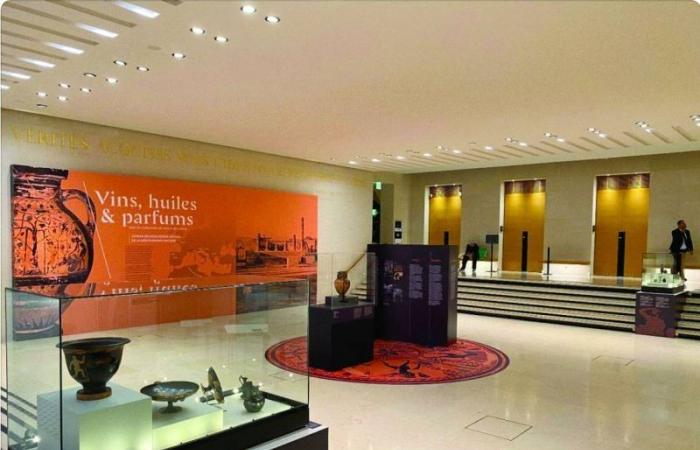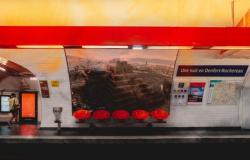What did Gallo-Roman wine taste like? What did Greek perfumes smell like? A retrospective exhibition in Paris invites you to discover and smell ancient flavors, following in the footsteps of an archaeologist from the Collège de France.
For nearly 50 years, Jean-Pierre Brun devoted himself to the study of the techniques and economies of Antiquity, by excavating the artisanal districts of Pompeii, by taking an interest in viticulture in Gaul or by reconstructing the chemistry of perfumes of ancient Greece.
“An archeology very different from what his peers before him could do”, consisting not of working on “the great history of the Roman Empire”, but on “the daily life of the middle class”, explains historian Julien Auber de Lapierre, curator of this exhibition which travels through archaeological sites located in Italy, Greece, France and in the Egyptian eastern desert. The amphorae, corks, oil lamps and perfume vases – the Louvre museum lent pieces for the exhibition –, as well as the presses, cellars and transport ships, exhibited in the form of models, provided the researcher with valuable information about these products. Perfumes, with very diverse uses, cosmetics, massages, medical care, perfuming linen or thermal bath benches, on the other hand, have long remained mysterious. There were certainly the recipes of Dioscorides, a Greek doctor and pharmacologist from the 1st century. “But it remained a little abstract,” says the exhibition curator.
By analyzing the sediments found at the bottom of perfume vases in collaboration with a specialized chemist, the French archaeologist was able to recreate one of these fragrant oils, rhôdinon, which visitors to the exhibition are invited to smell. “You needed green olive oil, a root base – calamus, a kind of slightly fragrant reed – which served as a fixative, and Damascus roses. This mixture had to be brewed by hand in large jars whose insides were covered with honey, and your hands also had to be covered with honey,” explains Mr. Auber de Lapierre.
An exhibition to explore and feel.
Commercial networks
Another major product, consumed by both the aristocracy and the more popular classes, wine was “very different” from the one we know.
“We aged it a little, which gave it a rather harsh taste. The wines were regularly cut with water or strongly spiced to break this harshness. It looked a bit like a cooked wine,” explains Mr. Auber of Lapierre. Beyond rediscovered tastes, wines, oils and perfumes tell the story of the economic vitality of a Mediterranean world dominated by agriculture and already very connected from one region to another.
“Commercial networks are extremely dense,” he notes. We always tend to believe that in the 21st century, we live in an interconnected world, but this was already the case for those periods. »
The discovery in the south of France of agricultural villas “capable of producing several thousand hectoliters per year” showed that the cultivation of vines there was not just “a production of amateurs for local consumption but for export purposes,” notes the exhibition curator.
In this case too, the amphoras “speak without the need for text”. Some, with characteristic shapes and marks, traveled from Tunisia to the Italic Peninsula. Others were found on the edges of the ancient world, in Germany or in the Egyptian desert, where Roman garrisons monitored trade routes to the Indian subcontinent. There, their shards served as supports for exchanging messages from fort to fort, for example about fights between soldiers.
“A small story, but one that brings life and a certain humanity back to these caravan routes,” underlines Mr. Auber de Lapierre.
Free, the exhibition “Wines, oils and perfumes. Archaeological journey around the ancient Mediterranean”, is visible at the Collège de France, Paris 5th, from October 28, 2024 to January 31, 2025.
Benedict KING/AFP
What did Gallo-Roman wine taste like? What did Greek perfumes smell like? A retrospective exhibition in Paris invites you to discover and smell ancient flavors, following in the footsteps of an archaeologist from the Collège de France. For nearly 50 years, Jean-Pierre Brun devoted himself to the study of the techniques and economies of ‘Antiquity, by excavating the artisanal districts of Pompeii,…
- -





